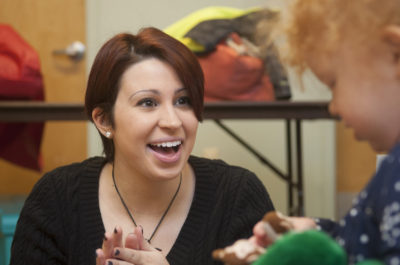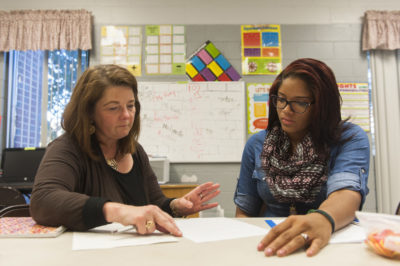The governor of Virginia announced Monday that the Commonwealth has approved 25 new education degrees, including two new programs at the University of Lynchburg.

Majoring in education is new in Virginia, which formerly required teachers to earn a bachelor’s degree in another discipline and obtain a teaching license separately. The state legislature allowed the change to streamline the teacher preparation process and help more people get into the profession.
The University of Lynchburg now offers majors in elementary education and special education. There also is a secondary education minor, which can be taken along with a major relating to the subject a person wants to teach in middle or high school.
The changes go far beyond the name of the majors on a graduate’s diploma, though. Dr. Roger Jones, dean of the College of Education, Leadership Studies, and Counseling at Lynchburg, said the education faculty have been “rebuilding” the teacher-candidate preparation programs to help students become effective educators through more practice and mentoring.
“We believe changes to the program will enhance the quality of our future teachers,” he said.
The new education majors include a new focus on teaching diverse students. “Our curriculum has been restructured to include more exposure to inclusion, working with students with disabilities, and working with English language learners,” Dr. Jones said. “We will continue to focus on experiences where our teacher-candidates are spending time in real classrooms.”

This fall, the Lynchburg education program will launch a new mentorship effort designed to help students transition into teachers. It uses a model developed by the New Teacher Center, a California-based nonprofit, that helps teachers become more successful in their first year. The University of Lynchburg has trained 76 teachers in Central Virginia to become mentors. Students will be paired with a mentor from their first education class through their first year teaching full time. The students and mentors will use the New Teacher Center’s Learning Zone, an online platform that supports teacher mentoring.
“Our innovative program is the first in the nation to completely integrate these evidence-based Learning Zone resources from the first education course through early-career mentoring,” Dr. Jones said.
Two new teacher scholarships are available, too. A Teacher-Scholar Program adds $2,500 to a student’s financial aid package, and a Noyce Scholarship will award up to $20,000 per year to students who are preparing to teach science or math.
“Our goal is to become a program of choice for anyone who wants to teach,” Dr. Jones said. “We are excited about the changes.”
The changes to the education program have been supported by several grants, including $86,500 from the Jessie Ball DuPont Fund, $47,198 from the Virginia Department of Education, $25,000 from the Charles A. Frueauff Foundation, and $1.4 million from the National Science Foundation Robert Noyce Scholarship Program.

